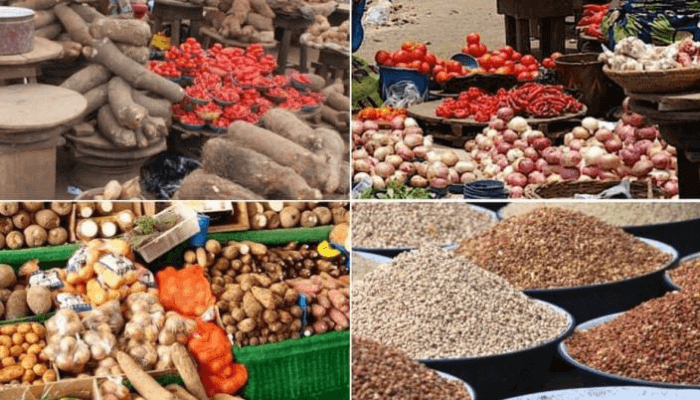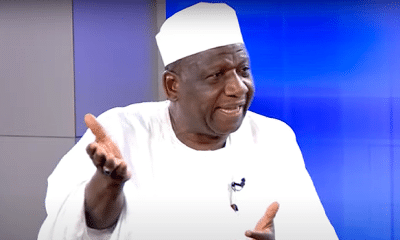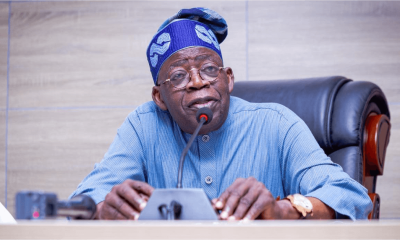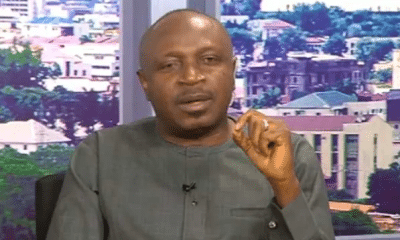Business
Nigerians Still Groaning, Yearn For A Sigh Of Relief Over High Cost Of Food Amid Inflation Drop

The news of inflation dropping in February 2025 to 23.18 percent and 23.51 percent, respectively, announced by the National Bureau of Statistics (NBS), was met with applause from government officials and pro-government supporters who saw it as a sign of economic recovery.
However, the reality is different on the streets, as food prices remain high, transportation costs continue to rise, and families still struggle to afford basic necessities.
Recall that President Bola Tinubu, in his Ramadan message to Muslims, said his administration policies have started yielding positive results, noting that the country is witnessing gradual stabilisation of the foreign exchange rate with prices of food items now downward.
Findings by Naija News indicate that prices of some food items have dropped compared to December 2024 and January 2025 but are not as low and affordable as when President Tinubu assumed office.
Current Price Of Basic Food Items December/January Price
– A bag of Rice ₦70.000 – ₦75.000 ₦82.000 – ₦85.000
– A bag of Beans ₦80.000 – ₦85.000 ₦102.000
– A Tuber of Yam ₦3,000 ₦4,000 – ₦5,000
– A bag Garri ₦38.000 – ₦40.000 ₦48.000
– 25 liter of palm oil ₦48.000 ₦60.000
– 25 liter groundnut oil ₦60.000 ₦90.000 -100.000
While there is a slight reduction in some items, many commodities are still expensive, which is the reason many Nigerians find it hard to believe the official inflation figures, as they do not translate into tangible relief.
Why Food Prices Are Still High
In an exclusive interview with Naija News, Global Affairs Analyst, Gbenga Onifade, highlighted factors responsible for the lack of price reduction in food items despite a drop in inflation.
He said, “You’ve got to understand it was a significant drop actually I think it went as high as 40% to 24% I mean of course it did show there’s an improvement in the in the economy’s condition but like I said again the rate is still relatively high and and of course you said why are some things still very expensive okay. I think a lot of times when you look at the markets, the markets are always forward-looking so even you as a trader as an investor, whatever you do in your business, you are always forward-looking so if there’s a slight drop or significant drop the trader will not drop their price instantly, they are out to make money. So I think oftentimes the retailers or traders they are not going to factor the end you know they would not transfer the full drop to the customers okay.
“So they will take yes they give some of the credit back in terms of price depreciation but at the same time they would not transfer the full they will not pass on the full drop to the customer so yes so you would expect you know the price of things to still be quite or relatively high on that one side. I said about the market being forward-looking, so you are holding on because you know you don’t know what to come next in the future, so half the time, people do not hold their breath because they still expect the hike to be back on.
“I mean not everyone tracks the economy the way you know should I say the way major well the way some people do so they are used to the significance hike I think we will be experiencing this hike for a while now you know quite a few years So they’re used to that, and they’re waiting on whatever issues to be back on. We are dealing with a country, us, Nigeria, it’s not a textbook mechanism. We are talking about, and I’m sorry to say this, but it’s a constant approach when we’re talking about insecurity on rest and terrorism, et cetera, that can always disrupt the supply chain. So half the times they’re not holding their breath, there’s no trust with the system, and that’s why things are still fairly high.”
Addressing Root Cause Of Inflation
Speaking on how the government can address the root cause of inflation in Nigeria, Onifade said, “I think the government is doing enough, absolutely, but can they still do more? Of course they can do more. I think recently, the finance minister, Wale Edun, passed some palliatives on to the people. I don’t know how many people were given the palliatives, quite a few people, actually, but if you think about it, that’s only a short time.
“You would only finish spending it, but there has to be a lot of major policy reform, again infrastructure development, and that’s where it comes. The fundamentals in Nigeria are quite weak; palliatives is good but will not adequately address the issue. The government need to address the root cause through policy reforms and strategic investment in the agricultural sector, promotion of modern family techniques, the financial system where farmers will have access to loans.”
While the NBS’s inflation report paints a picture of economic improvement, the average Nigerian is yet to feel any real difference. Until policies directly address the root causes of inflation and cost-of-living pressures, the disconnect between government figures and street reality will continue to widen.
For now, many Nigerians can only hope that, beyond the numbers, real economic relief will soon reach their homes and pockets.












